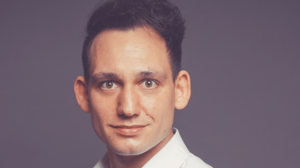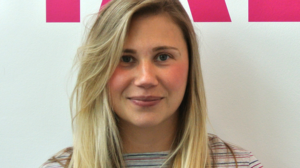Funded researchers: Dr. Gordon Zyla & Dr. Britta Eggers
Dr. Gordon Zyla
Faculty of Mechanical Engineering

In nature, sophisticated surface structures on the micro- or nanoscale can cause impressive abilities for animals and plants, such as enhanced adhesion, wear resistance, self-cleaning, or coloration. These structural systems hide an endless potential for engineering to develop new sustainable applications.
However, natural structural systems are mostly highly complex from a technical perspective. Therefore, its mimicry requires the use of flexible production methods with high precision. A laser-based 3D printing technology known as Two-photon polymerization (2PP), whose working principle is comparable to a conventional 3D printer, has a great potential to be applied as a rapid prototyping tool in this research field in the future. The 2PP enables the fabrication of arbitrary 3D polymer structures that can be many times smaller than the diameter of a human hair. However, this technology is subjected to a high production time due to its high spatial resolution. Therefore, my Gateway Fellowship project aims to increase the production speed of 2PP for biomimetic research significantly. For this purpose, I use a specific optic, known as Diffractive Optical Element, that allows me to generate from one laser beam multiple laser beamlets. The multiple beamlets will then be used to fabricate periodic structures with mechanical properties (adhesion/friction) on an area of 1 cm² in a maximum time of 48 h. The structures to be fabricated will be inspired by those found in geckos or snakes. The research will take place in the Nonlinear Lithography group at the Institute of Electronic Structure and Laser (IESL), Foundation of Research and Technology-Hellas (FORTH). The supervisor will be Dr. Maria Farsari, who is one of the pioneers in 2PP research. Her significant expertise in using 2PP in various research fields, the systematic development of 2PP materials to their application, and her extensive, international network will positively impact the project results.
Dr. Britta Eggers
Faculty of Biology and Biotechnology

Skeletal muscle disorders are mostly triggered by mutations in essential structural proteins. Due to the large number of possible mutated proteins, they are characterised by clinically highly heterogeneous manifestations. In almost all cases, the mutations lead to severe restriction of the patient's movement, progressive muscle weakness and ultimately to failure of the heart and lung muscles. To date, no curative therapy can be offered for the majority of cases, and knowledge of early pathomechanismsis is sparse. Therefore the need for suitable model organisms mimicking in vivo states are of immense interest. Unfortunately, current available in vitro models mimicking human diseases often fail to correctly recapitulate the in vivo cell state and behaviour. The research group of Prof. Dr. Elvassore at the University of Padova has made it its task to couple principles of engineering with biological questions in order to create optimal conditions for the growth of cells in culture, reaching higher states of maturation. The research group of Prof. Dr. Elvassore uses novel state-of-the-art bioprinting and microfluidic technologies to produce 3-dimensional environments, in which cells, in contrast to standard 2D cell cultures, have the possibility to gain a higher state of organization. With this technique cells are not only able to maturate further, but also cell reprogramming of stem cells into different cell identities is enabled. With this, Prof. Elvassore and colleagues aim to reprogram patient derived cells into specific cell identities, enabling the maturation and differentiation into fully developed cell types. In my Gateway Fellowship I will use these innovative techniques to establish 3D skeletal muscle cell cultures, enabling myotube differentiation and maturation, resembling the in vivo state. The established protocol shall further be used on skeletal muscle biopsies from patients with various neuromuscular disorders, creating patient-specific cell cultures. This work will pave the way for personalised patient-based studies, where pathomechanisms can be monitored, analysed and ultimately therapeutic interventions be tested and evaluated.
- Forschungsbezogene Kompetenzen: Workshops & Veranstaltungen
- Karrierevorbereitung: Workshops & Veranstaltungen
- Forschungsmanagement Skills: Workshops & Veranstaltungen
- Liste aller Workshops & Veranstaltungen
- Förderprogramme zur Internationalisierung
- Beratung & Ombudsperson
- Promovierenden-Datenbank
- Welcome Hour
- Newsletter


